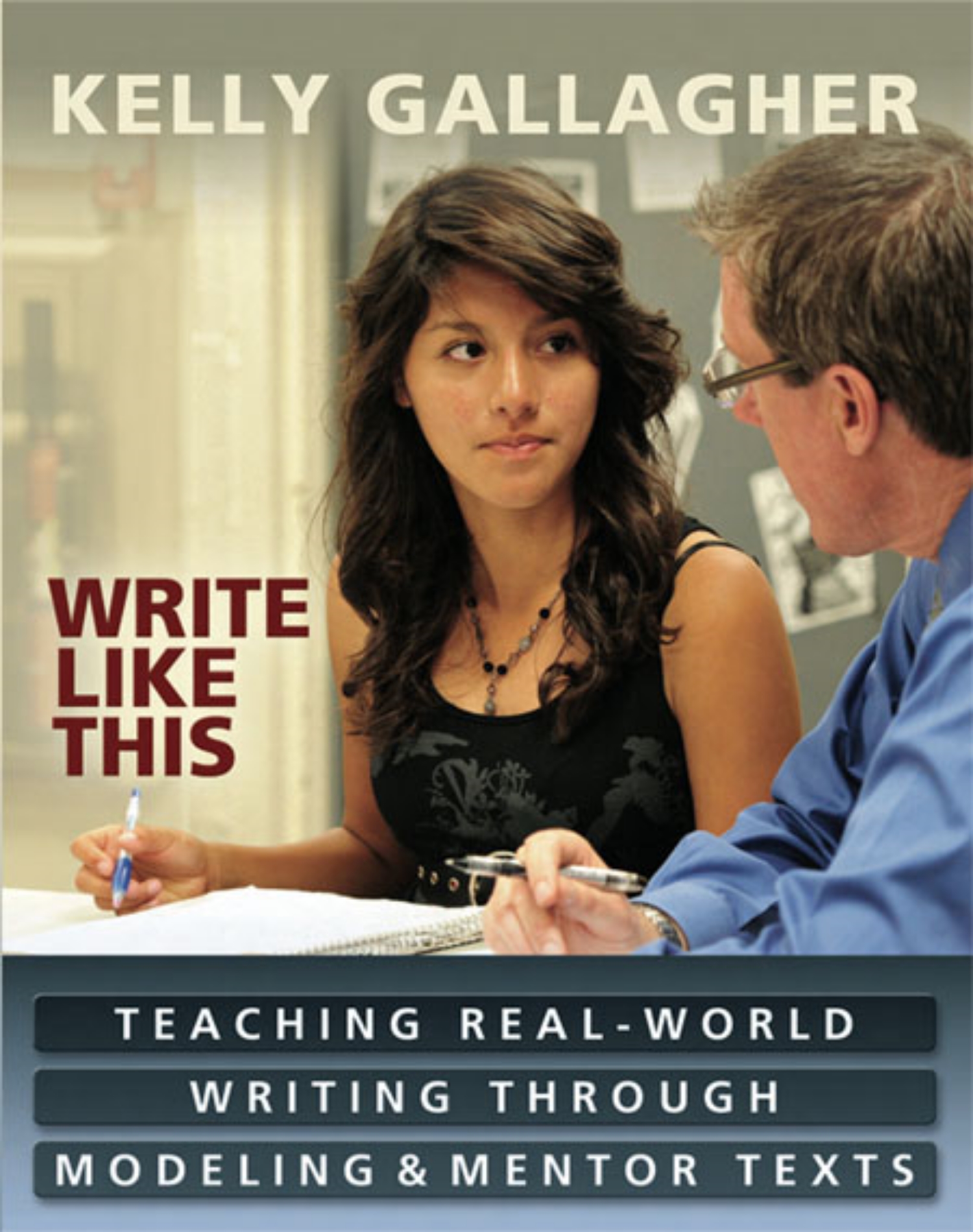kelly's books
180 Days: Two Teachers and the Quest to Engage and Empower Adolescents
180 Days represents the collaboration of Kelly and master teacher Penny Kittle over an entire school year: planning, teaching, and reflecting within their own and each other's classrooms in California and New Hampshire. Inspired by a teacher's question, "How do you fit it all in?" they identified and prioritized the daily, essential, belief-based practices that are worth spending time on. The results, captured in this book, include their insights on managing time and tasks, as well as their teaching strategies for engaging students in both whole class and independent work. (Heinemann 2018)
In the Best Interest of Students
There are real strengths in the Common Core standards, and there are significant weaknesses as well. In his latest book, In the Best Interest of Students, Kelly takes the long view, reminding us that standards come and go but what remains constant is the need to stay true to what we know works in the teaching of reading, writing, speaking and listening. In addition to sharing his ideas on authentic teaching and learning, Kelly shares effective strategies for achieving meaningful results in the ELA classroom. (Stenhouse, 2015)
Write Like This
If students are to grow as writers, they need to read good writing, to study good writing and, most important, to emulate good writers. In Write Like This, Kelly explores the importance and value of using modeling and mentor texts when teaching students to become better writers. (Stenhouse, 2011)
Readicide
Read-i-cide n: The systematic killing of the love of reading, often exacerbated by the inane, mind-numbing practices found in schools. Reading is dying in our schools. Educators are familiar with many of the factors that have contributed to the decline—poverty, second-language issues, and the ever-expanding choices of electronic entertainment. In Readicide, Kelly argues that American schools are actively (though unwittingly) furthering the decline of reading. He then provides teachers, literacy coaches and administrators with specific steps to reverse the downward spiral in reading—steps that will help prevent the loss of another generation of readers. (Stenhouse, 2009)
Teaching Adolescent Writers
In an increasingly complex world, it is critical that students know how to write. From the demands of standardized tests to those of the wired workplace, the ability to write well, once a luxury, has become a necessity. In Teaching Adolescent Writers, Kelly shows how students can be taught to write effectively, sharing a number of classroom-tested strategies that enable teachers to motivate young writers, understand the importance of teaching writing, and assess essays in ways that drive better writing performance. (Stenhouse, 2006)
Deeper Reading
Do your students often struggle with difficult novels and other challenging texts? Do they primarily comprehend at a surface level? In Deeper Reading, Kelly shows how students can be taught to successfully read a broad range of challenging and difficult texts with deeper levels of comprehension. In addition to sharing his insights and ideas, he provides guidance on effective lesson planning that incorporates his classroom-tested and proven strategies for deeper reading. (Stenhouse, 2004)
Reading Reasons
Reading Reasons offers a series of mini-lessons specifically tailored to motivate middle and high school students to read, and in doing so, to help them understand the importance and relevance reading will take in their lives. Divided into nine specific "real-world" reasons why students should be readers, Reading Reasons gives teachers 40 practical, classroom-tested and reproducible mini-lessons that get to the heart of reading motivation. Ready for immediate use in English (as well as other content-area) classrooms, these lessons help students discover the lifelong benefits of reading. (Stenhouse, 2003)
classroom texts/media
Kelly is a featured author for the MyPerspectives literacy program (Savvas) for grades 6-12.







